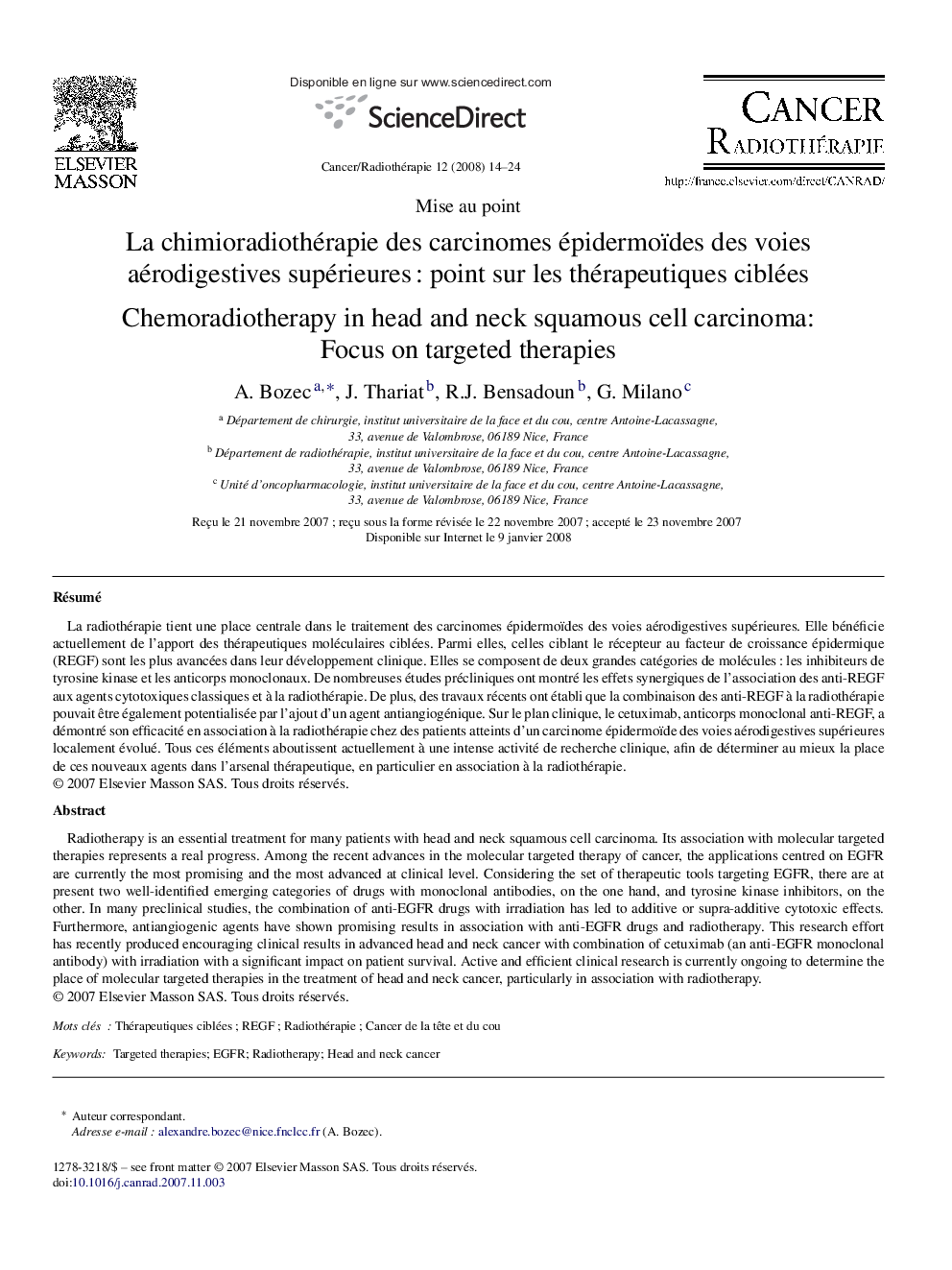| Article ID | Journal | Published Year | Pages | File Type |
|---|---|---|---|---|
| 2119237 | Cancer/Radiothérapie | 2008 | 11 Pages |
Abstract
Radiotherapy is an essential treatment for many patients with head and neck squamous cell carcinoma. Its association with molecular targeted therapies represents a real progress. Among the recent advances in the molecular targeted therapy of cancer, the applications centred on EGFR are currently the most promising and the most advanced at clinical level. Considering the set of therapeutic tools targeting EGFR, there are at present two well-identified emerging categories of drugs with monoclonal antibodies, on the one hand, and tyrosine kinase inhibitors, on the other. In many preclinical studies, the combination of anti-EGFR drugs with irradiation has led to additive or supra-additive cytotoxic effects. Furthermore, antiangiogenic agents have shown promising results in association with anti-EGFR drugs and radiotherapy. This research effort has recently produced encouraging clinical results in advanced head and neck cancer with combination of cetuximab (an anti-EGFR monoclonal antibody) with irradiation with a significant impact on patient survival. Active and efficient clinical research is currently ongoing to determine the place of molecular targeted therapies in the treatment of head and neck cancer, particularly in association with radiotherapy.
Keywords
Related Topics
Life Sciences
Biochemistry, Genetics and Molecular Biology
Cancer Research
Authors
A. Bozec, J. Thariat, R.J. Bensadoun, G. Milano,
